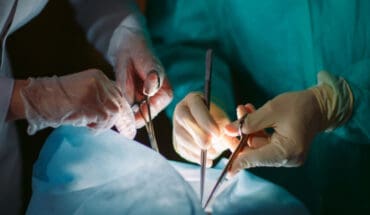Cosmetic surgery is booming, but the regulation surrounding who can perform cosmetic procedures with what level of expertise and training, is totally inadequate. The fact remains that a GP with two weeks so-called ‘training’ can perform breast augmentation procedures. Almost anyone at all can set themselves up a cosmetic specialist and carry out filler injections on patients, as long as they get the right informed consent.
Things are going to change for the better. The GMC has now published guidelines to doctors stating that they should only perform procedures for which they are trained and competent and refer a patient to a colleague if they cannot safely meet the needs of the patient. People seeking cosmetic procedures should be given time to reflect and doctors should consider their psychological needs and vulnerabilities before they go ahead. An intercollegiate working party is looking into how they can bring in minimal standards – something that should really have been done decades ago.
One of the key things is to ensure that only qualified doctors with the right skill sets can carry out cosmetic surgery. A GMC-sponsored register will help to ensure that patients can choose their specialist with all the information they need.
We need to take a drastic look at the training of junior doctors themselves. Within the NHS training protocols, cosmetic surgery has largely been ignored, not least because it is rarely performed because it is seen as unnecessary enhancement. The specialism has been seen as rather demeaning, so a huge void has opened up. Instead of trained medical specialists, the gap has been filled by dubious experts, often brought in by large aesthetic companies from abroad where standards are far lower or easily breached.
As a consultant ophthalmic surgeon, I have been trained in oculoplastic surgery to repair and reconstruct damage caused by cancer and other problems. I have been fortunate in that I was also able to get a rare fellowship in cosmetic oculoplastic surgery which means I can also perform eye lifting surgery, blepharoplasty, mid face lifts and brow lifts with a high degree of competence.
As the training director of oculoplastic surgery at Moorfields Eye Hospital, I am initiating measures to ensure that NHS trainees also get experience in assisting in private clinics where they can learn cosmetic skills alongside those of reconstruction. Indeed, in my view, this is the key way to ensure that future generations of plastic surgeons can safely perform cosmetic procedures too, within their sphere of competence. And surely, it is time to rethink the artificial distinction between reconstructive plastic surgery and cosmetic surgery anyway? A good aesthetic result is just as important to the cancer sufferer as the patient who wants to roll back the years.
- Acid attacks and eye injuries - 15th November 2017
- Avoid eye injuries on Bonfire night - 3rd November 2017
- Say goodbye to injections for Wet AMD - 18th May 2017






